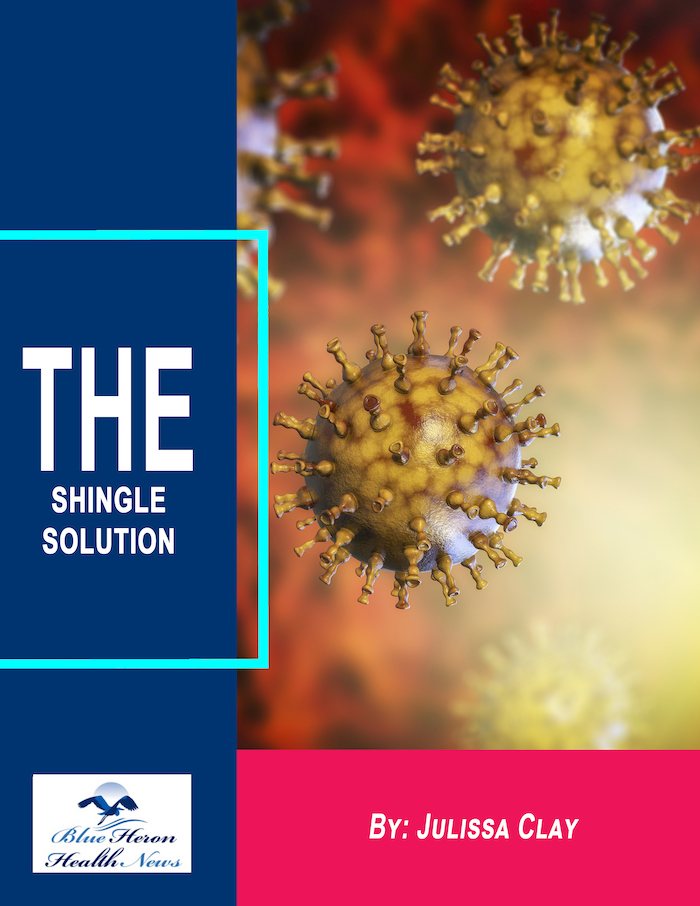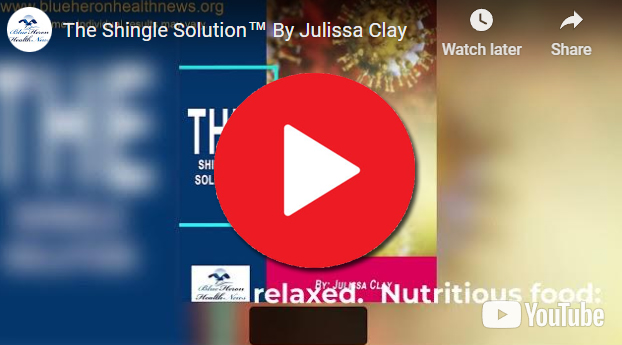
The Shingle Solution™ By Julissa Clay This eBook includes a program to treat the problem of shingle naturally. The author of this eBook, Julissa Clay, a practitioner in natural health, has killed the shingles causing virus completely to overcome the problem of PHN or Postherpetic neuralgia, one of the common complications caused by shingles. This program helps in melting PHN in a few weeks and make shingles a forgotten nightmare.
What are the risk factors for developing shingles?
Risk Factors for Developing Shingles: A Comprehensive Guide
Shingles, also known as herpes zoster, is a viral infection caused by the reactivation of the varicella-zoster virus (VZV), which also causes chickenpox. After a person recovers from chickenpox, the virus remains dormant in the nerve tissues and can reactivate years later, causing shingles. Understanding the risk factors for developing shingles is crucial for prevention and management. This comprehensive guide explores the various factors that increase the likelihood of developing shingles, including age, immune status, underlying health conditions, lifestyle factors, and more.
1. Age
Increased Risk with Age:
- Older Adults: The risk of developing shingles increases significantly with age. Approximately half of all cases occur in people over the age of 60. This is because the immune system weakens with age, making it more difficult for the body to keep the varicella-zoster virus dormant.
- Declining Immunity: As people age, their cell-mediated immunity (the immune response that involves T-cells) declines. This reduction in immune function can allow the varicella-zoster virus to reactivate, leading to shingles.
2. Immune Status
Weakened Immune System:
- Immunocompromised Individuals: People with weakened immune systems are at a higher risk of developing shingles. This includes individuals with HIV/AIDS, cancer patients undergoing chemotherapy or radiation therapy, and organ transplant recipients taking immunosuppressive medications.
- Autoimmune Diseases: Conditions such as rheumatoid arthritis, lupus, and other autoimmune diseases can compromise the immune system, increasing the risk of shingles.
Medications:
- Immunosuppressive Drugs: Medications that suppress the immune system, such as corticosteroids, biologics, and drugs used to prevent organ transplant rejection, can increase the risk of shingles.
- Cancer Treatments: Chemotherapy and radiation therapy weaken the immune system, making it more susceptible to viral infections like shingles.
3. Previous History of Chickenpox
Varicella-Zoster Virus (VZV):
- Chickenpox Infection: Anyone who has had chickenpox is at risk of developing shingles later in life. The varicella-zoster virus remains dormant in the nerve tissues after a chickenpox infection and can reactivate years or even decades later as shingles.
Vaccination:
- Chickenpox Vaccine: While the chickenpox (varicella) vaccine reduces the risk of getting chickenpox, it does not entirely eliminate the possibility. People who have had the chickenpox vaccine can still get shingles, though it may be less severe.
- Shingles Vaccine: The shingles vaccine (e.g., Shingrix) is recommended for adults over 50 and for those with weakened immune systems. It significantly reduces the risk of developing shingles and its complications.
4. Stress and Psychological Factors
Chronic Stress:
- Impact on Immunity: Chronic stress can weaken the immune system, making it more difficult for the body to keep the varicella-zoster virus in a dormant state. This can increase the likelihood of the virus reactivating and causing shingles.
- Stress Hormones: High levels of stress hormones, such as cortisol, can suppress the immune response, increasing vulnerability to infections like shingles.
Emotional and Psychological Factors:
- Mental Health: Depression, anxiety, and other mental health conditions can negatively affect the immune system, potentially increasing the risk of shingles. Psychological stress can also trigger or exacerbate shingles outbreaks.
5. Gender
Gender Differences:
- Female Predisposition: Studies suggest that women are slightly more likely than men to develop shingles. The reasons for this difference are not entirely understood but may be related to hormonal differences or healthcare-seeking behaviors.
6. Ethnicity
Ethnic Variations:
- Caucasians: Research indicates that Caucasians are more likely to develop shingles compared to African Americans and other ethnic groups. The reasons for these variations are not well understood but may involve genetic, environmental, and socioeconomic factors.
7. Chronic Diseases
Diabetes:
- Impact on Immunity: People with diabetes have an increased risk of infections, including shingles, due to compromised immune function. High blood sugar levels can weaken the immune system, making it harder to fight off infections.
- Nerve Damage: Diabetes can cause nerve damage, which may exacerbate the pain and complications associated with shingles.
Cardiovascular Disease:
- Weakened Health: Conditions such as heart disease can weaken the overall health and immune system, increasing the risk of shingles.
- Medications: Some medications used to treat cardiovascular diseases may also affect immune function.
Chronic Obstructive Pulmonary Disease (COPD):
- Increased Risk: Individuals with COPD have a higher risk of developing shingles due to chronic inflammation and the use of corticosteroids, which can suppress the immune system.
8. Lifestyle Factors
Smoking:
- Immune Suppression: Smoking can weaken the immune system, making it harder for the body to keep the varicella-zoster virus dormant. This increases the risk of shingles.
- Inflammation: Smoking causes chronic inflammation, which can exacerbate the severity of shingles.
Alcohol Consumption:
- Excessive Drinking: High alcohol intake can suppress the immune system and increase susceptibility to infections, including shingles.
- Nutritional Deficiencies: Chronic alcohol use can lead to nutritional deficiencies, further weakening immune function.
9. Nutritional Status
Malnutrition:
- Immune Compromise: Poor nutrition can weaken the immune system, making it more difficult to prevent the reactivation of the varicella-zoster virus.
- Specific Nutrients: Deficiencies in specific nutrients, such as vitamins A, C, D, and E, and minerals like zinc and selenium, can impair immune function and increase the risk of infections.
10. Other Factors
Trauma or Surgery:
- Physical Stress: Physical trauma, including surgery, can weaken the immune system and trigger the reactivation of the varicella-zoster virus, leading to shingles.
- Local Nerve Damage: Surgical procedures that affect nerves may increase the risk of shingles in the affected area.
Weather and Climate:
- Seasonal Variation: Some studies suggest that shingles may be more common in certain seasons, particularly in the winter and spring. This could be related to factors such as reduced sunlight exposure and the impact of cold weather on the immune system.
11. Heredity and Genetics
Genetic Susceptibility:
- Family History: A family history of shingles may indicate a genetic predisposition to the condition. Specific genetic factors that influence the immune system’s response to the varicella-zoster virus may increase the risk of developing shingles.
Conclusion
Shingles is a complex condition with multiple risk factors, including age, immune status, previous history of chickenpox, stress, gender, ethnicity, chronic diseases, lifestyle factors, nutritional status, trauma, and genetic susceptibility. Understanding these risk factors can help identify individuals at higher risk and guide preventive measures, such as vaccination and lifestyle modifications. Early diagnosis and treatment are crucial for managing shingles effectively and reducing the risk of complications. Consulting with healthcare providers for personalized advice and management strategies is essential for individuals at risk of developing shingles.

The Shingle Solution™ if you are suffering from shingles then The Shingle Solution can be the best program for you to relieve your pain and itching by using a natural remedy. It describes the ways to use this program so that you can feel the difference after using it as directed. This natural remedy for shingles can also help in boosting your immune system along with repairing your damaged nerves and relieve pain and itching caused by shingles.